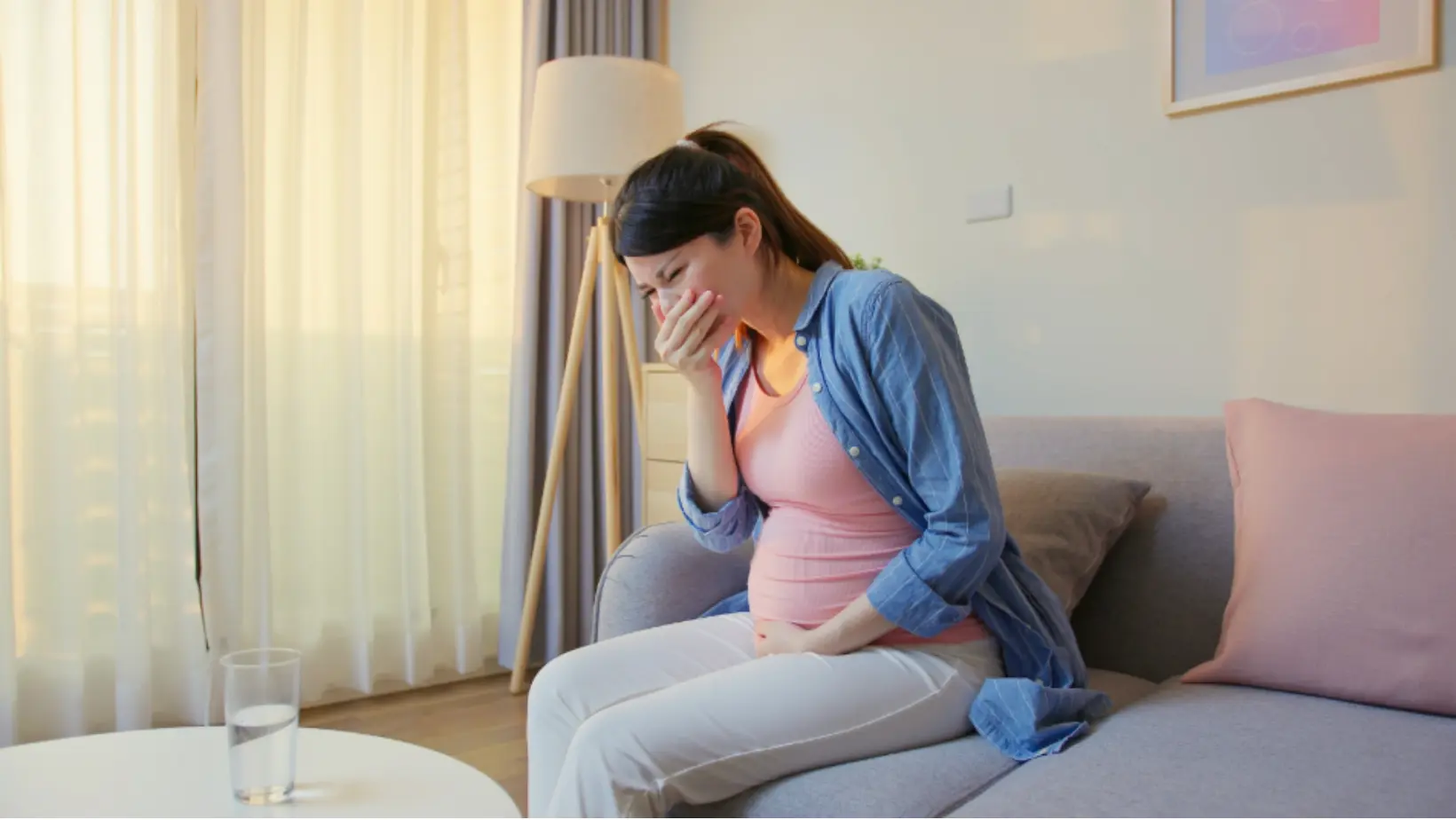Every woman is different, and pregnancy symptoms can vary greatly from one woman to another. Nausea during the first trimester of pregnancy affects between 50% and 80%¹ of pregnant women. And it can be caused by a number of factors.
Hormonal changes
Nausea is often linked to the hormonal fluctuations that are much prevalent in early pregnancy. Estrogen and progesterone levels rise dramatically during this period. They peak towards the end of the first trimester, then stabilize thereafter. As a result, the vast majority of pregnant women who experienced severe nausea at the start of pregnancy see it subside significantly towards the end of the 1st trimester.
How can nausea be relieved or reduced?
Non-pharmacological methods
Nutrition
Although there is no scientific evidence to support the efficacy of these tips, many pregnant women will testify to their effectiveness. First of all, avoid an empty stomach by eating less, but more often. Introduce foods and snacks rich in protein or complex carbohydrates into your diet on a regular basis. Keep a few saltine crackers on your bedside table to snack on before you even get out of bed.
Certain foods or smells can aggravate nausea in some people; fatty or spicy foods, for example. Try to identify these foods and adapt your diet accordingly.
Many pregnant women find relief from nausea in very cold foods, such as smoothies. A smoothie can be made with yogurt, milk, orange juice, fruit, silken tofu or avocado… It’s possible to replace a meal with a smoothie, making sure to vary the foods and incorporate enough of them to ensure a well-balanced meal. To make it easier to take, it can be drunk through a straw, or even eaten as a popsicle.
Hydration
Dehydration can increase nausea. Make sure you drink throughout the day. You could try ginger-based infusions or lemon water.
Ginger
Ginger is renowned for its anti-nausea properties. You can consume it in a variety of ways. Ginger tablets are also available in pharmacies. Talk to your health-care professional about this.
If you don’t like the taste of ginger on its own, you can incorporate it into recipes such as smoothies.
Rest
Fatigue and stress exacerbate nausea. Set aside a moment during the day to relax. You’ll feel much better to go about your business afterwards.
Replace your prenatal vitamins
The iron in prenatal vitamins can increase nausea. With your healthcare professional’s approval, you could replace your vitamins with a folic acid supplement or a low-iron vitamin.
Acupuncture and acupressure
Unfortunately, there is insufficient evidence to support the use of acupuncture for the treatment of nausea and vomiting in pregnant women. However, several studies have demonstrated the effectiveness of acupressure on the P6 point (located 3 fingers above the wrist, between the 2 tendons).
Pharmacological methods
Vitamin B6
Vitamin B6 has been recognized for its anti-nausea effect for decades. Numerous studies have confirmed its efficacy and safety when taken at the recommended dosage.
Medication
Several drug treatments have been studied and found to be safe during pregnancy. Many health professionals, including pharmacists, nurses, doctors and midwives, are authorized to prescribe medication following an assessment of your condition.
In rare cases, some women may develop a condition known as hypermesis gravidarum. This condition, which affects 0.3-2% ¹ of pregnancies, is associated with weight loss, frequent vomiting, dehydration and metabolic disorders.
When should you consult?
If nausea and vomiting are having an impact on your daily life, or if you notice weight loss, consult a healthcare professional.
You should seek urgent medical attention if you show signs of dehydration (dry mouth, concentrated urine, decreased urination, dizziness, weakness or persistent vomiting).
Marie Fortier
The Baby Expert
Article revised by Alexandra Brousseau, nurse clinician.
Updated article : February, 2025.
To learn more, please read these articles:
Watch this video:
Reference :
¹Directive clinique 339; Prise en charge des nausées et vomissements de la grossesse. SOGC 2016


